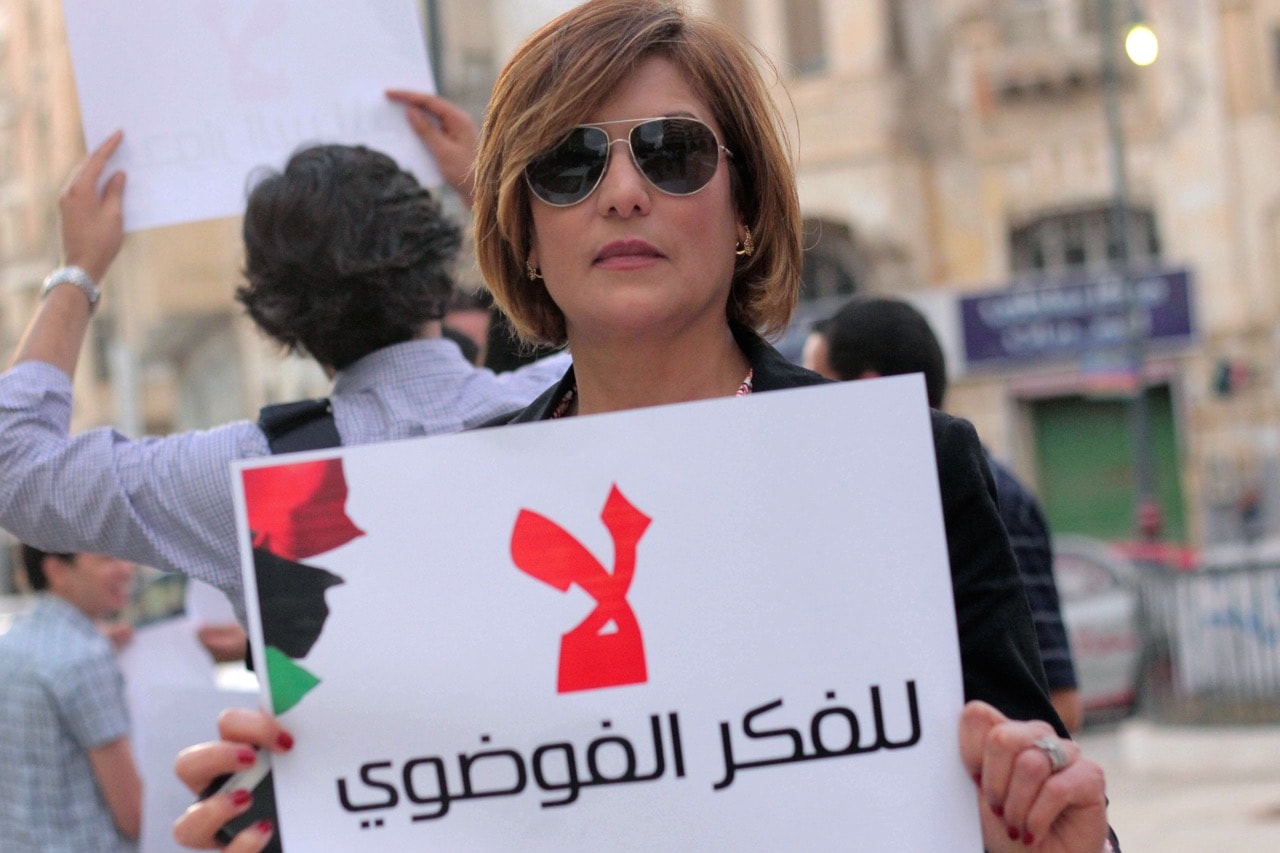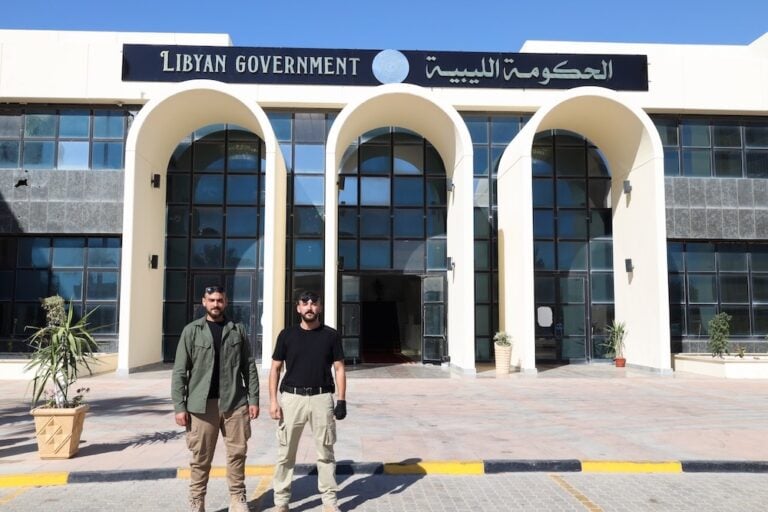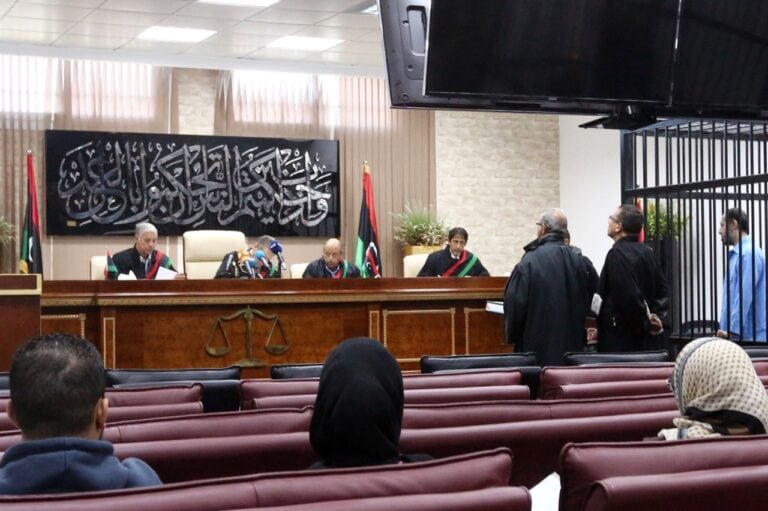As political turmoil and armed violence has escalated since 2013 and peaceful politics has receded sharply since the spring of 2014, the violence has impacted Libyan women as well.
This statement was originally published on cihrs.org on 28 November 2018.
On the International Day for the Elimination of Violence against Women
November 25[1] is the UN’s annual International Day for the Elimination of Violence against Women.[2] One in every three women will experience physical or sexual violence at some point in their lives. 71 percent of human trafficking victims around the world are women and girls, and three out of four women are sexually exploited. The UNGA designated this day to be a call for governments and international and local non-governmental organizations to organize activities to raise social awareness of the magnitude, forms, and seriousness of violence against women worldwide.[3]
Libya is a party to most conventions that constitute the basis of international human rights law,[4] including the Convention on the Elimination of All Forms of Discrimination against Women (CEDAW),[5] and it is bound by the UNGA Declaration on the Elimination of Violence Against Women.[6] Yet thus far, its compliance has been largely formal and unsubstantiated by legislation[7] and concrete measures and programs. Libya lacks mechanisms to protect women, which has compounded women’s hardships in the recent period.
Libya’s efforts to protect women subjected to violence have been limited to providing a hotline for complaints,[8] which had already been made available under the former regime. Libya has no security services dedicated to following up on complaints of sexual violence, and there are very few female police officers. [9]
Furthermore, the Libyan authorities have taken no step to offer supplementary services like shelters, with the exception of two women’s shelters – one in the capital and one in Benghazi – supervised by the Ministry of Justice. These shelters house women who have completed prison sentences and are unable to return to their homes. The job of the staff at the shelters is only to monitor the behavior of the women, and they offer no psychological care[10] or other necessary services.
The undersigned organizations are gravely concerned by the growing violence against women in Libya’s civic space and regret the failure of the Libyan authorities to meet their obligations in this regard.[11] We again urge the Libyan authorities to assume their responsibility to protect women from all forms of violence, including by:
. Issuing legislation and allocating the resources necessary to properly enact these laws.
. Developing institutions for the protection of women and training their staff.
. Restoring the hotline to assist women victims of violence and ensure that all methods of assistance are available.
. Regularly updating data on violence against women and girls.
. Taking action to protect female migrants from harm and exploitation and ensure they receive adequate assistance, and combatting human trafficking.
. Raising public awareness and improving social mobilization through media programs and educational seminars with the participation of the ministries of Culture, Social Affairs, Endowments, Health, and Media.
. Training law enforcement staff and increasing the number of female staff to ensure a proper, healthy engagement with issues of violence against women, particularly domestic violence.
Signatory Organizations
Biladi Foundation for Human Rights, Sabratha
Consulting Center for Human Rights, Tripoli
Bidaya for Human Rights Awareness, Tripoli
Network of Women’s Defenders, Benghazi
Rights Advocates Without Limits, Benghazi
Arban for Civic Orientation, Kufra
Migration Rights Group, Tripoli
al-Bariq for Children’s Rights, Tripoli
Libyan Center for Human Rights, Tripoli
Youth for Tawergha, Tawergha
Libya Center for Rights and Freedoms, Zawiya
al-Nasir for Human Rights, Tripoli
Human Rights Solidarity, Tripoli
Independent Organization for Human Rights, Misrata
Cultural and Social Outreach, Ubari
Cairo Institute for Human Rights Studies, Tunis
al-Aman Organization Against Racial Discrimination, Murzuq
International Arab Organization for Women’s Rights, Tripoli
Hope of the South for Peace and Sustainable Development, Murzuq
Muhajir Organization for Illegal Migration and Displaced Persons, Kufra
al-Nasma al-Alila Center for Social Studies and Family Counseling, Tripoli
Background information on violence against women in Libya
Women have participated in public life since Libya’s independence in the 1950s. At this time, Libyan women enjoyed higher and diverse educational opportunities, and proved their abilities and excellence in many fields. Libyan women actively participated in the revolution of February 17, 2011, claiming new space for political participation. Libyan women exercised their right to run for national and local office and vote, as well as their rights to freedom of expression and peaceful assembly; rights they exercised to demonstrate and protest gender-based violence and discrimination.
Although data on violence against women in Libya is not rigorously documented, a 2017 report on public opinion in Libya[12] cited a poll conducted by the International Foundation for Electoral Systems that showed growing violence against women,[13] illustrated by increasing acceptance and justification of domestic violence. However, the poll did not offer accurate statistics about domestic violence against Libyan women and did not address violence against women in public life. The most recent official study of domestic violence in Libya remains the Libyan National Family Health Survey of 2014,[14] conducted by the Statistics and Census Department of the Ministry of Planning, which does not comprehensively cover other forms of violence against women. The survey found that 8.2 percent of women in Libya faced domestic violence, 79 percent of it verbal violence.[15]
Yet it is well known that women in Libya face multiple forms of verbal and physical violence in public life and outside the home. As political turmoil and armed violence has escalated since 2013 and peaceful politics has receded sharply since the spring of 2014, the violence has impacted Libyan women as well. Examples of violence against Libyan women in the public sphere include the assassination of rights activist and lawyer Salwa Bugaighis in her home in Benghazi on June 25, 2014 and the assassination of Fariha Barkawi, a member of parliament for the General National Congress, in Derna on July 17, 2014. Another parliamentarian, Sabah al-Hajj, was beaten in her apartment in Tobruk on February 16, 2016, and a video circulated on social media showing parliamentarian Siham Sergewa being insulted and cursed by an employee at the La Braq Airport. Security concerns are also a major impediment to women’s participation in public life.
Violence against women has increased in recent years with continued political polarization and armed conflict, and the growing influence of militias and criminal gangs. According to a report from the human rights division of the United Nations Support Mission in Libya,[16] at least 18 women and 13 girls were killed and 26 women and 15 girls injured in armed conflicts in Libya in 2017.[17] Reports from al-Tadamon show that 48 women and girls were victims of kidnapping and murder between January 2017 and September 2018.[18] There are also growing numbers of women detained on security grounds for prolonged periods without legal process or trial. A report from the Office of the High Commissioner for Human Rights noted that 200 women and 120 children were detained in severely overcrowded facilities lacking adequate ventilation and light and supervised by male prison guards.[19]
In addition, undocumented female migrants suffer from poor treatment and inhumane conditions in prisons operated by the Anti-illegal Migration Agency. These facilities lack basic services, and women detained there are subjected to various forms of exploitation,[20] including sexual exploitation.
For the footnotes and further information, please read the full statement on CIHRS’s site.



